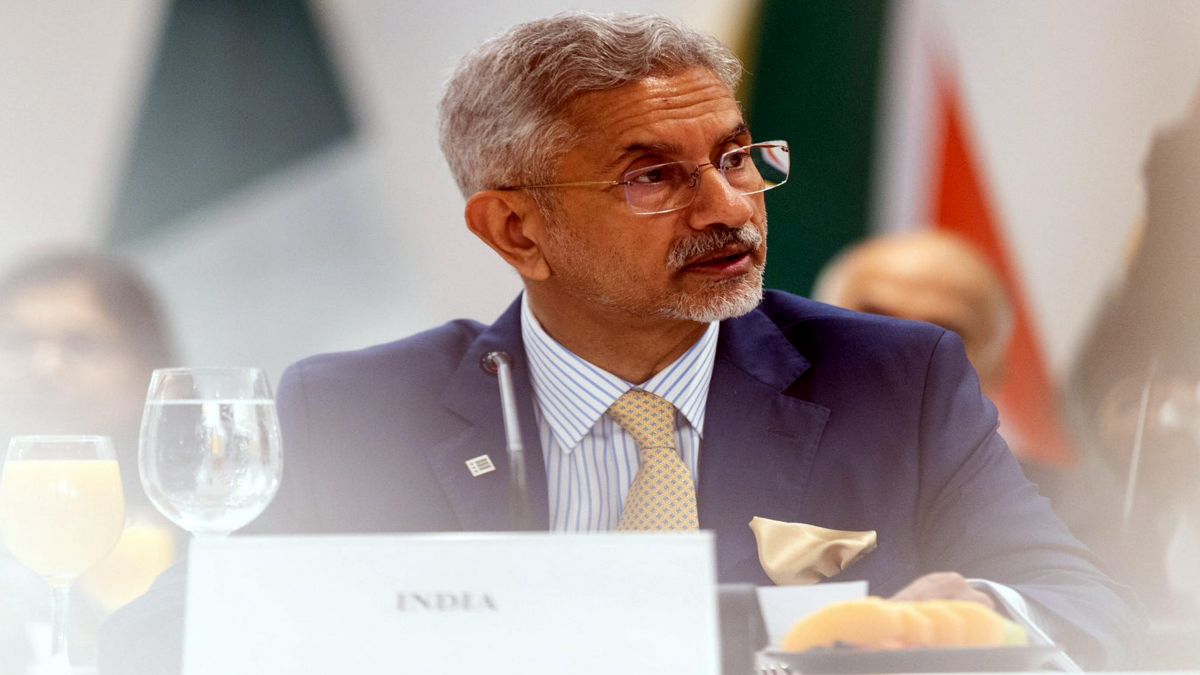Conflict often leads to a reset in ties. As India and Pakistan engaged in a near-war, New Delhi’s ties with Ankara nosedived, as the nation extended support to Islamabad.
Now, it seems that there’s another reset brewing — between India and the Taliban, which governs Afghanistan. Why though?
On Thursday, External Affairs Minister S Jaishankar spoke with the Taliban’s acting Foreign Minister Amir Khan Muttaqi over an official phone call. This marks the first political-level contact and conversation since the Taliban captured power in Kabul in August 2021.
But what did Jaishankar discuss with the Taliban minister? Also, how this phone call figures in the evolving ties between India and Afghanistan?
We have the answers for you.
Jaishankar’s phone call with Taliban minister
On May 15, External Affairs Minister S Jaishankar held a telephone conversation with the Acting Afghan Foreign Minister Amir Khan Muttaqi. It’s important to note that India is yet to officially recognise the Taliban administration in Pakistan. Moreover, the phone call came just days after the Taliban regime condemned the Pahalgam terror attack, in which 26 civilians were killed by Pakistan-linked terrorists.
Taking to X after the phone call, S Jaishankar wrote, “Good conversation with Acting Afghan Foreign Minister Mawlawi Amir Khan Muttaqi this evening. Deeply appreciate his condemnation of the Pahalgam terrorist attack.”
He added that during the discussion he “underlined our (India’s) traditional friendship with the Afghan people and continuing support for their development needs. Discussed ways and means of taking cooperation forward.”
Jaishankar also wrote that he welcomed Muttaqi’s firm rejection of recent attempts to create distrust between India and Afghanistan through false and baseless reports. This was a reference to claims made by Pakistani media that India had “hired” the Taliban to carry out a “false flag” operation at Pahalgam.
Additionally, Pakistan’s military spokesperson, Lieutenant General Ahmed Sharif Chaudhry, had earlier alleged in a press conference that India had “fired missiles at Afghan soil and conducted drone attacks inside Afghanistan”.
Notably, the Afghan side didn’t mention the Pahalgam attack or the military escalation between India and Pakistan in its readout of the phone call. Instead it focused on Afghan-India ties. Hafiz Zia Ahmed, director of public communication at the Taliban’s Ministry of Foreign Affairs, said that Muttaqi asked Dr Jaishankar to provide more visas to Afghan nationals, especially to those seeking medical attention. He also mentioned that bilateral trade, release and return of Afghan prisoners in Indian jails, and development of the Chabahar Port in Iran were discussed.
India-Taliban inching closer towards one another
Since the Taliban’s takeover of Afghanistan in 2021, New Delhi has been cautious towards the regime, not granting it official recognition. However, India has been engaging with the Taliban through senior diplomats.
For instance, last year, senior Indian diplomat JP Singh visited Afghanistan twice — once in March to meet Muttaqi and then in November to meet acting defence minister Mohammad Yaqub Mujahid.
Then this January, India’s Foreign Secretary Vikram Misri led a delegation of senior Indian diplomats at a substantive meeting in Dubai with Amir Khan Muttaqi. The Taliban government expressed interest in strengthening political and economic ties with India, calling it a “significant regional and economic power”. Talks reportedly focused on expanding trade and leveraging Iran’s Chabahar port, which India has been developing to bypass Pakistan’s Karachi and Gwadar ports.
At the time, Michael Kugelman of the Wilson Center, an American think-tank, had told BBC, “The fact that this treatment is coming from India - a nation that never previously had friendly relations with the Taliban, makes this all the more significant, and also a diplomatic triumph for the Taliban.”
And the engagements don’t stop there. In the last week of April, Delhi sent M Anand Prakash, Joint Secretary in charge of Pakistan, Afghanistan and Iran in the Ministry of External Affairs, to Kabul. Notably, the visit came amid rising tensions between India and Pakistan over the Pahalgam terror attack. However, it is not known whether the issue figured in Prakash-Muttaqi talks.
But at the same time, the Afghan Foreign Ministry condemned the Pahalgam terror attack. “The Ministry of Foreign Affairs of the Islamic Emirate of Afghanistan categorically condemns the recent attack on tourists in the Pahalgam region of Jammu and Kashmir, and expresses condolences to the bereaved families,” its spokesman Abdul Qahar Balkhi said.
Why India chooses to engage with Taliban
India’s engagement with Afghanistan is strategic. Many experts note that by engaging with the Taliban, New Delhi is keeping Pakistan at bay. As The Diplomat explains, if India engages with the Taliban, it could help stem the flow of terrorists, targeting India.
Ajay Bisaria, a former Indian envoy to Pakistan, also explains that by engaging with the Taliban, New Delhi is hoping to strike a deal in which it ensures that Afghan soil isn’t used for any anti-India activity in return for India permitting limited engagement and continued humanitarian support.
Kugelman also noted the same. In a BBC report, he was quoted as saying, “While Pakistan isn’t the only factor driving India’s intensifying outreach to the Taliban, it’s true that Delhi does get a big win in its evergreen competition with Pakistan by moving closer to a critical long-time Pakistani asset that has now turned on its former patron.”
There’s also the China factor. As Shanthie Mariet D’Souza, an Afghanistan expert, told DW, “India aims to restore its influence in a region where China has significantly stepped up its presence since August 2021.”
It is left to be seen what comes next, but for now uncertainty seems to be the norm.
With inputs from agencies
)